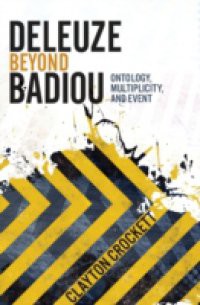First published in 1997, Alain Badious Deleuze: The Clamor of Being cast the thinker as a secret philosopher of the One, compromising Deleuzes standing among political philosophers concerned with the practical and historical aspects of existence. Clayton Crockett rehabilitates Deleuzes position within contemporary, cutting-edge political and philosophical thought, advancing an original reading of the thinkers major works and a constructive conception of his philosophical ontology.Through close readings of Deleuzes Difference and Repetition, Capitalism and Schizophrenia (with Felix Guattari), and Cinema 2, Crockett argues Deleuze is anything but the austere, quietistic, and aristocratic intellectual Badiou portrays. Instead, Crockett underscores Deleuzes radical aesthetics and innovative scientific, political, and mathematical forms of thought. Challenging predominant orthodoxy, he also refutes the notion that Deleuze retreated from politics toward the end of his life, grounding his argument in the revolutionary political concept of the time-image developed in Cinema 2. Using Badious critique as a foil, Crockett maintains the profound continuity of Deleuzes work and builds a general interpretation of his more obscure formulations. His study also offers original readings of Badious central philosophical texts, Theory of the Subject, Being and Event, and Logics of Worlds, and uses the devastating earthquake in Haiti as a test case for applying Deleuzes thought.

